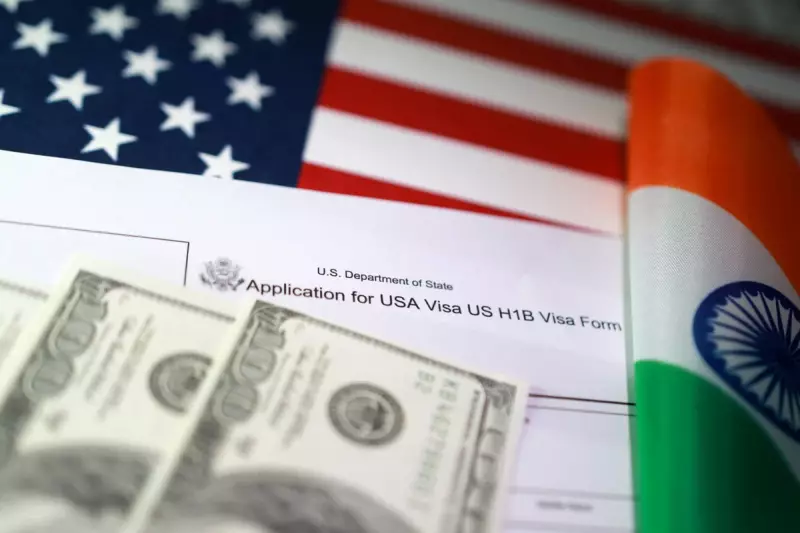
In a move that could dramatically reshape America's immigration landscape, former President Donald Trump is reportedly considering a substantial overhaul of the H-1B visa programme that would see application fees skyrocket for foreign professionals, particularly affecting Indian nationals who constitute the largest group of recipients.
The Proposed Fee Structure: A Financial Earthquake
According to sources familiar with the matter, the proposed changes would introduce a tiered fee system that could see H-1B visa application costs increase from the current $4,000 to as much as $25,000 for certain applicants. This represents one of the most significant increases in the programme's history.
The revised fee structure appears to target companies that employ large numbers of H-1B visa holders, with higher fees applying to firms where more than 50% of their workforce consists of visa holders. This would particularly impact Indian IT service companies that have historically relied heavily on the programme.
Impact on Indian Tech Community
Indian professionals have been the primary beneficiaries of the H-1B visa system, with approximately 75% of all H-1B visas typically going to Indian nationals. The proposed fee increases could potentially price out many qualified candidates and reshape the flow of tech talent between India and the United States.
Industry analysts suggest this move aligns with Trump's "America First" agenda, which during his presidency emphasised protecting American jobs and reforming immigration systems to prioritise domestic workers. The timing of these proposals, as Trump campaigns for a potential second term, signals immigration will remain a cornerstone of his political platform.
Broader Implications for US-India Relations
Beyond the immediate financial impact, these proposed changes could strain diplomatic relations between Washington and New Delhi. The H-1B visa programme has long been a point of discussion in bilateral talks, with Indian leaders frequently advocating for smoother visa processes for their highly skilled professionals.
The technology sector on both sides of the Pacific is watching developments closely, as any significant alteration to the H-1B system could disrupt supply chains, project timelines, and innovation pipelines that have become dependent on international talent exchange.
While these proposals remain in the discussion phase, their potential implementation would represent one of the most substantial reforms to US skilled immigration policy in recent decades, with far-reaching consequences for global talent mobility and international business operations.





